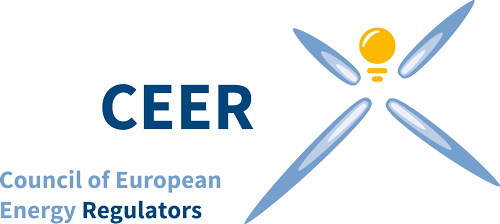Overview of ERGEG's work to prepare input to framework guidelines for electricity and gas
Legal background
At the heart of the EU's (2009) 3rd Package of energy liberalisation laws is the development of EU-wide network codes in 12 topic areas in electricity (and the same in gas). These EU-wide network codes are critical to enable cross-border trade and competition to develop across the EU and for an integrated EU energy market to become a reality.
The process for developing these network codes is stipulated in the legislation. These EU-wide network codes (which may become legally binding) will be drafted by the European Networks of transmission system operators TSO (ENTSOs) in line with the (non-binding) framework guidelines set out by the Agency for the Cooperation of Energy Regulation (ACER). ACER also has a role in reviewing the draft network codes, including their compliance with the framework guidelines.
Interim period until the creation of ACER
The 3rd Package provisions only became applicable in March 2011. During the period September 2009 - March 2011 (the so called "interim period)", the European Commission invited ERGEG (its advisory group of regulators on internal energy market issues) to "act as if it were ACER" in preparing (for input to ACER) draft framework guidelines. This was to be done in accordance with the formal timeframes and procedures set out in the 3rd Package.
ERGEG started with two pilot exercises (one in electricity - grid connection, and one in gas - capacity allocation) to test the end-to-end process. During the interim period, ERGEG worked on a total of six framework guidelines in parallel, in the following areas:
• electricity grid connection;
• electricity capacity allocation and congestion management;
• electricity system operation;
• gas capacity allocation;
• gas balancing rules; and
• gas harmonised transmission tariff structures
ACER takes over (from ERGEG) the framework guideline process
Under the 3rd Package, it is ACER who must submit the framework guidelines to the European Commission – the Commission will examine them to see if they meet the criteria of the Gas/Electricity Regulation, and it is the Commission who invites the ENTSOs to draft (within 12 months) the corresponding network code which must comply with ACER’s framework guideline. Indeed, ERGEG (the European Commission’s formal advisory group on internal energy market issues) will no longer exist, shortly after ACER (which has the status of being an EU Agency) assumes its full responsibilities and powers in March 2011.
Already in December 2010, ERGEG finalised and submitted to the Commission two (pilot) framework guidelines – one on electricity grid connection, and the other on gas capacity allocation. The European Commission has now invited ACER to formally submit (by 04 July 2011) the framework guideline on gas capacity allocation, and invited ENTSOG to submit to ACER (by 27 January 2012) a network code which must be in line with the framework guideline.
Framework Guideline development process
This process of developing Framework Guidelines, which should take 6 months including a mandatory public consultation, is set out in Article 6 of the new Electricity and Gas Regulations (EC/714/2009 and EC/715/2009, respectively).
ERGEG defined in its 2009 “next steps" paper (C09-GA-52-06a), a two-step process for developing the framework guidelines. Step 1 involves an Initial Impact Assessment justification (eventhough this is not required by the 3rd Package). Step 2 is the drafting the framework guideline (which including a 2-month period for receipt of responses to the regulators' public consultation documents). A major objective of the European energy regulators is to ensure that stakeholders are properly involved and consulted as the process may lead to legally-binding network codes.
- Ad hoc expert groups
ERGEG also provided (where necessary) for the possible set up of an ad hoc expert group to provide an input/assistance to the regulators. See the sub-folders on the various expert groups set up by ERGEG on the draft framework guidelines.
- Transparency regarding the draft Framework Guidelines developed during the interim period
This website continues to host the historical information (e.g. on the meetings of the ad hoc expert groups, or on the ERGEG public consultations on the draft framework guidelines and initial impact assessments conducted during the interim period.) on ERGEG's work on the framework guidelines during the interim period. Developments (as and from 3 March 2011) on the Framework Guidelines are posted on the ACER website.
